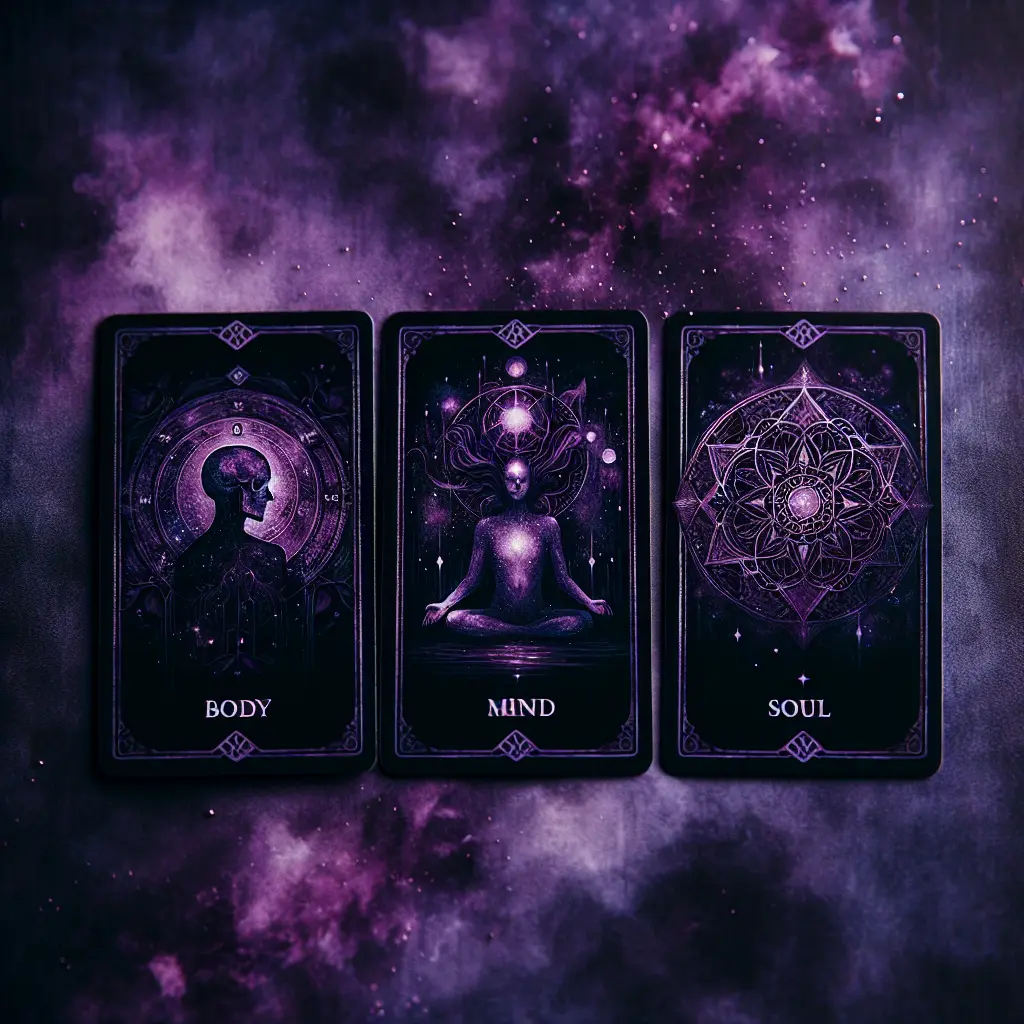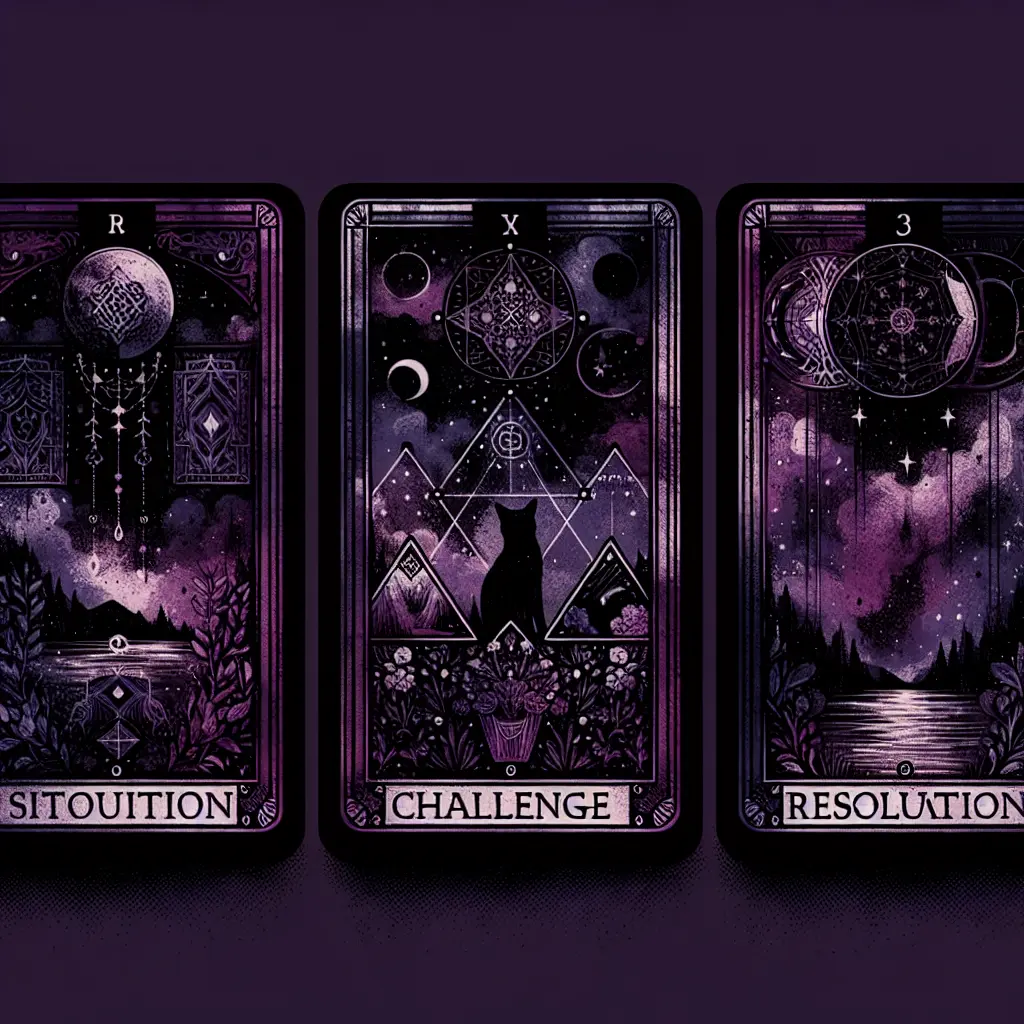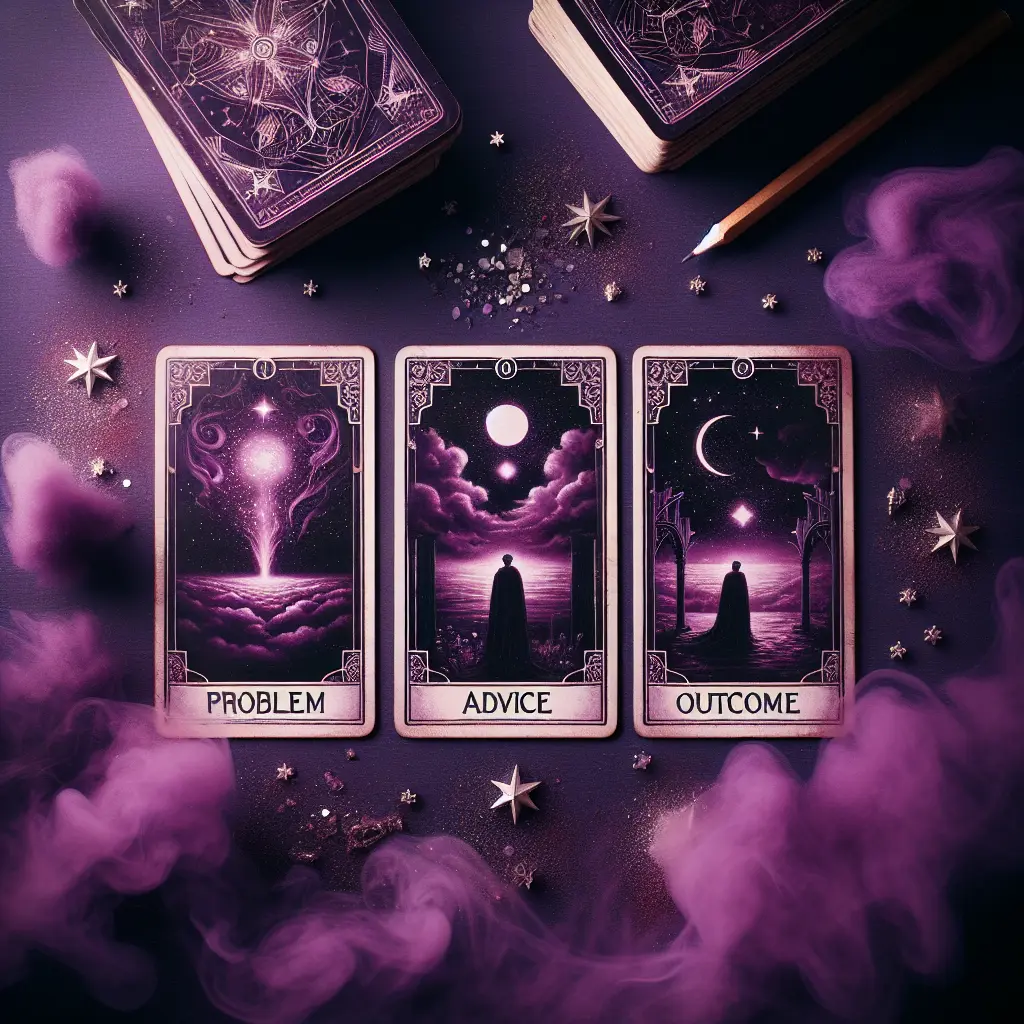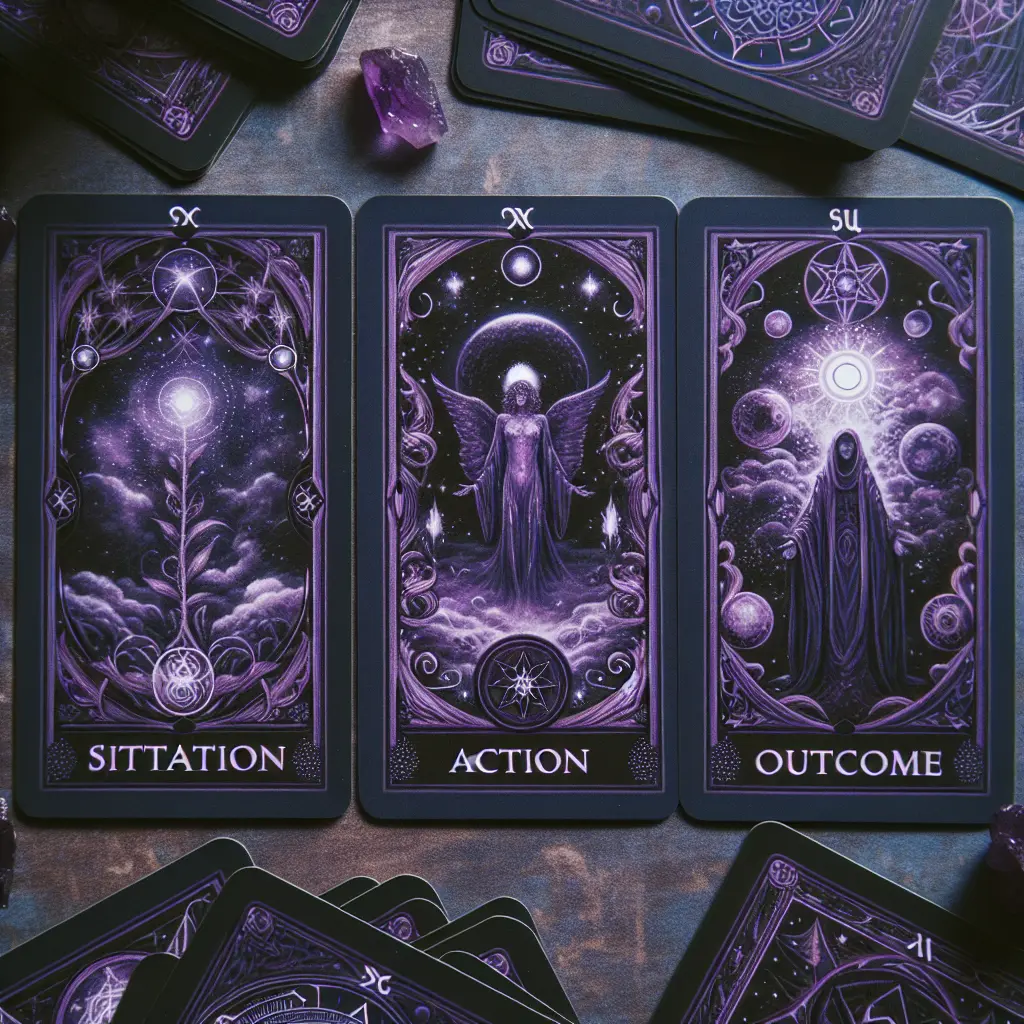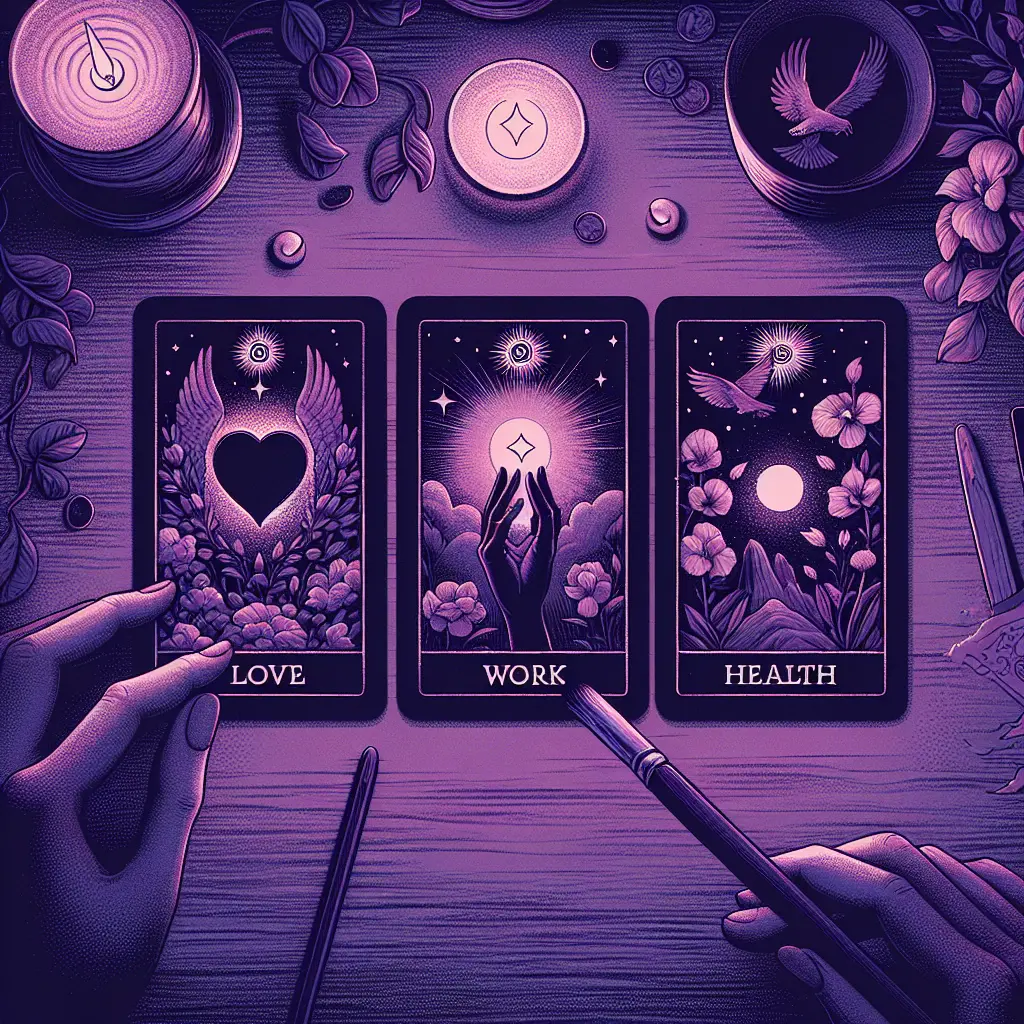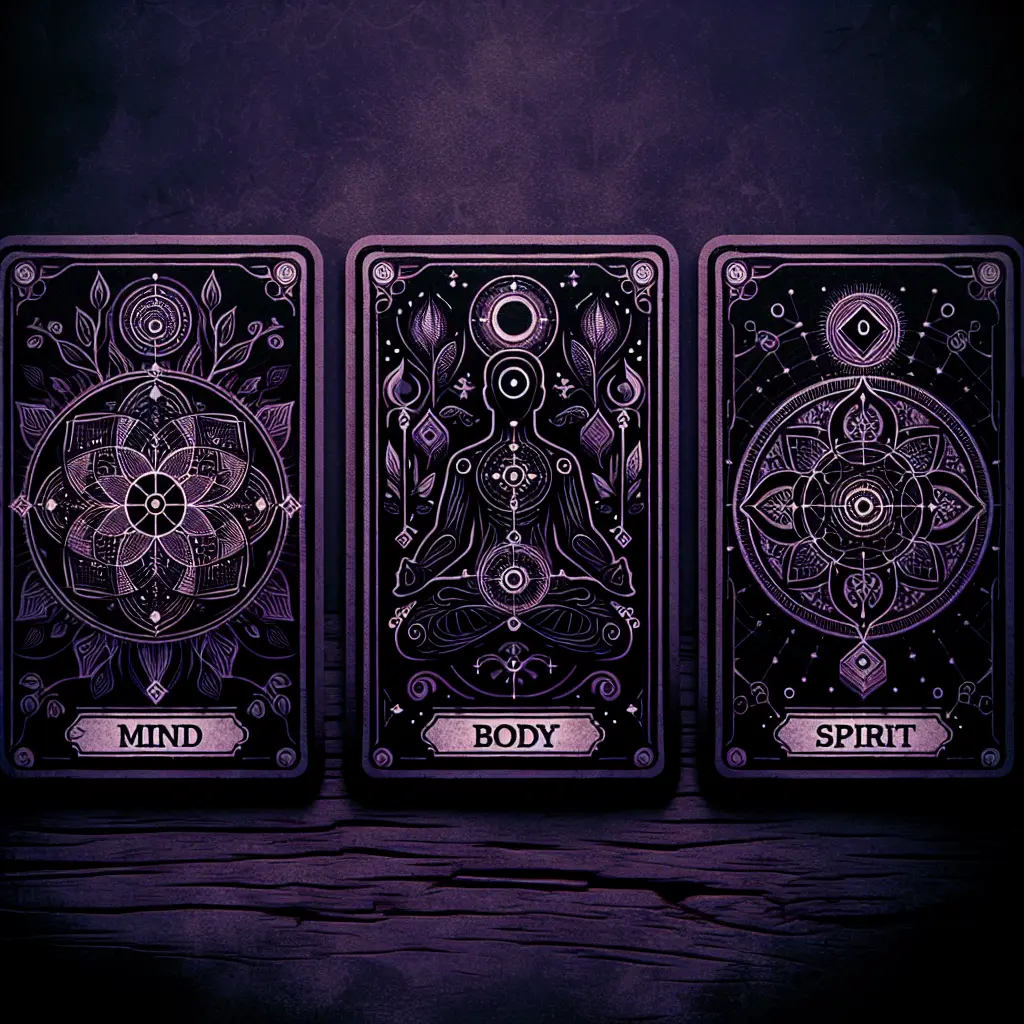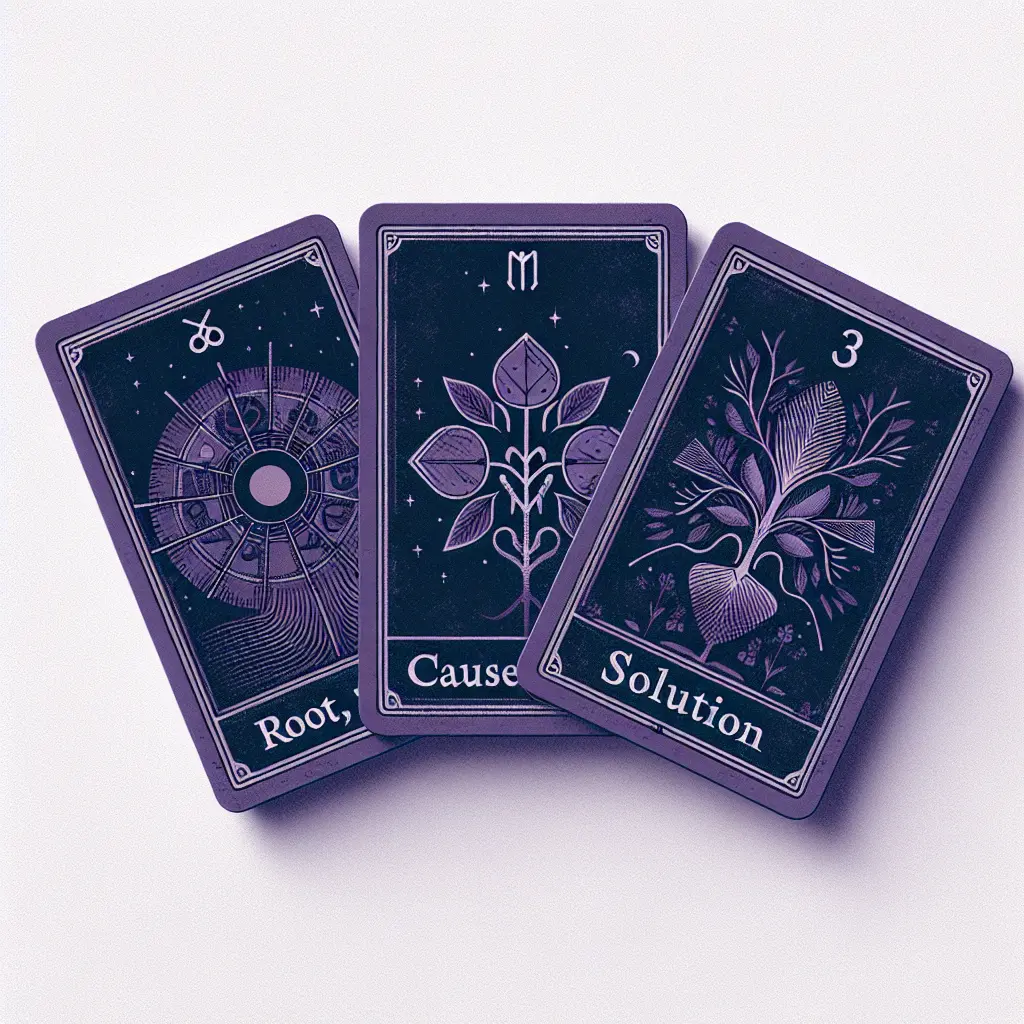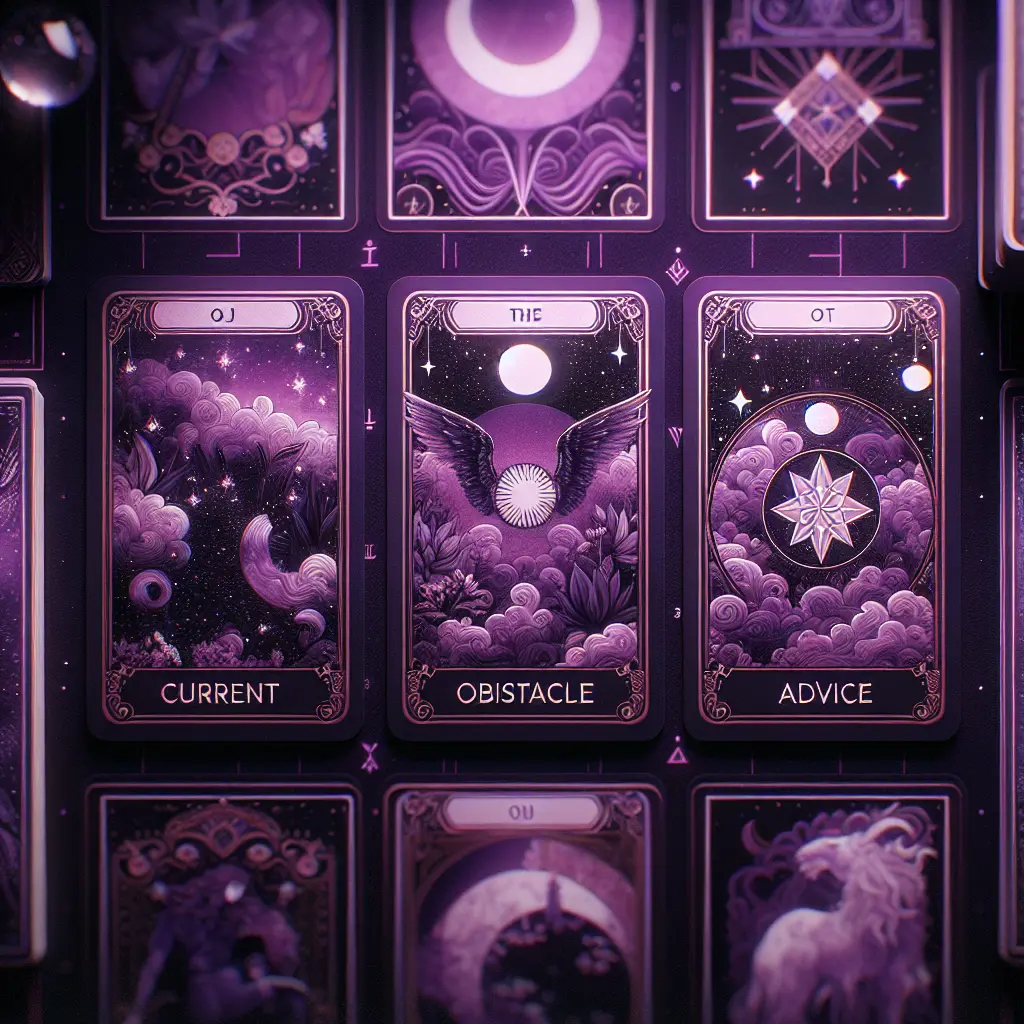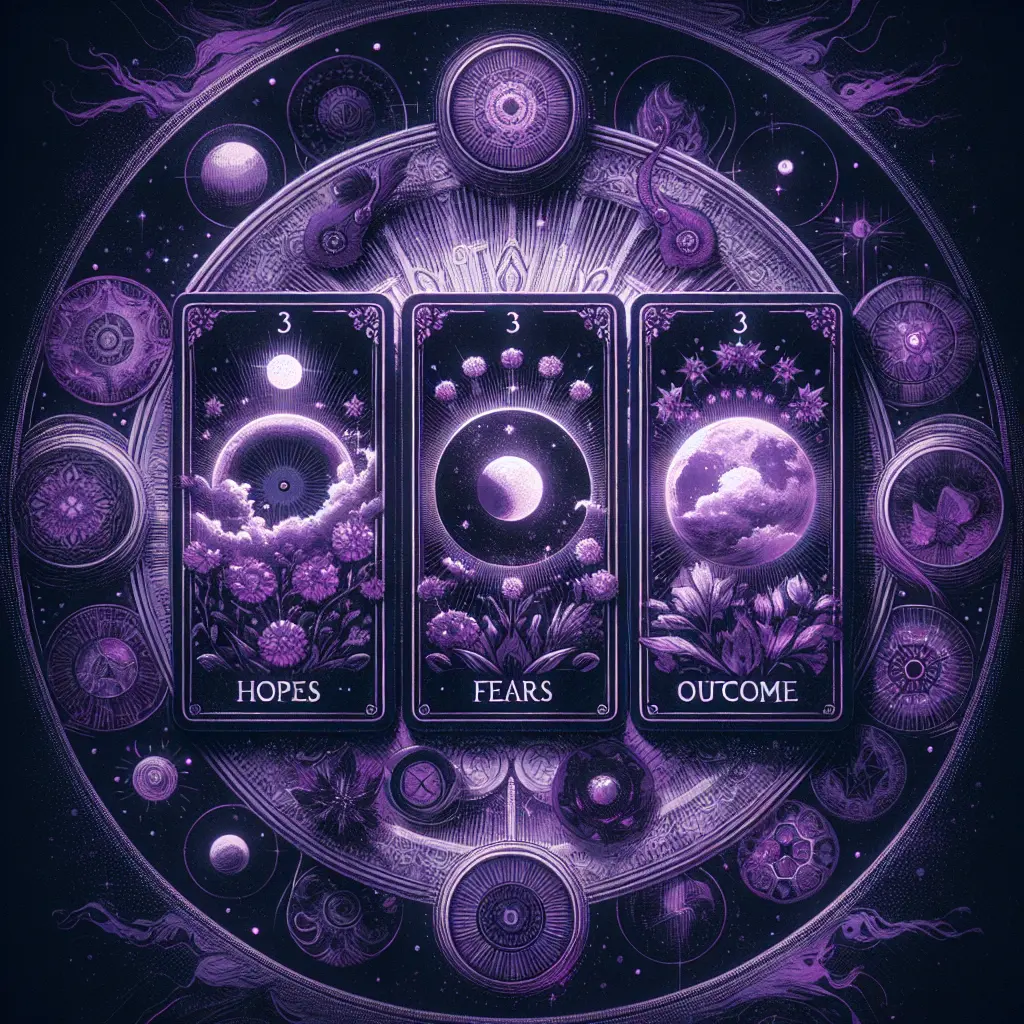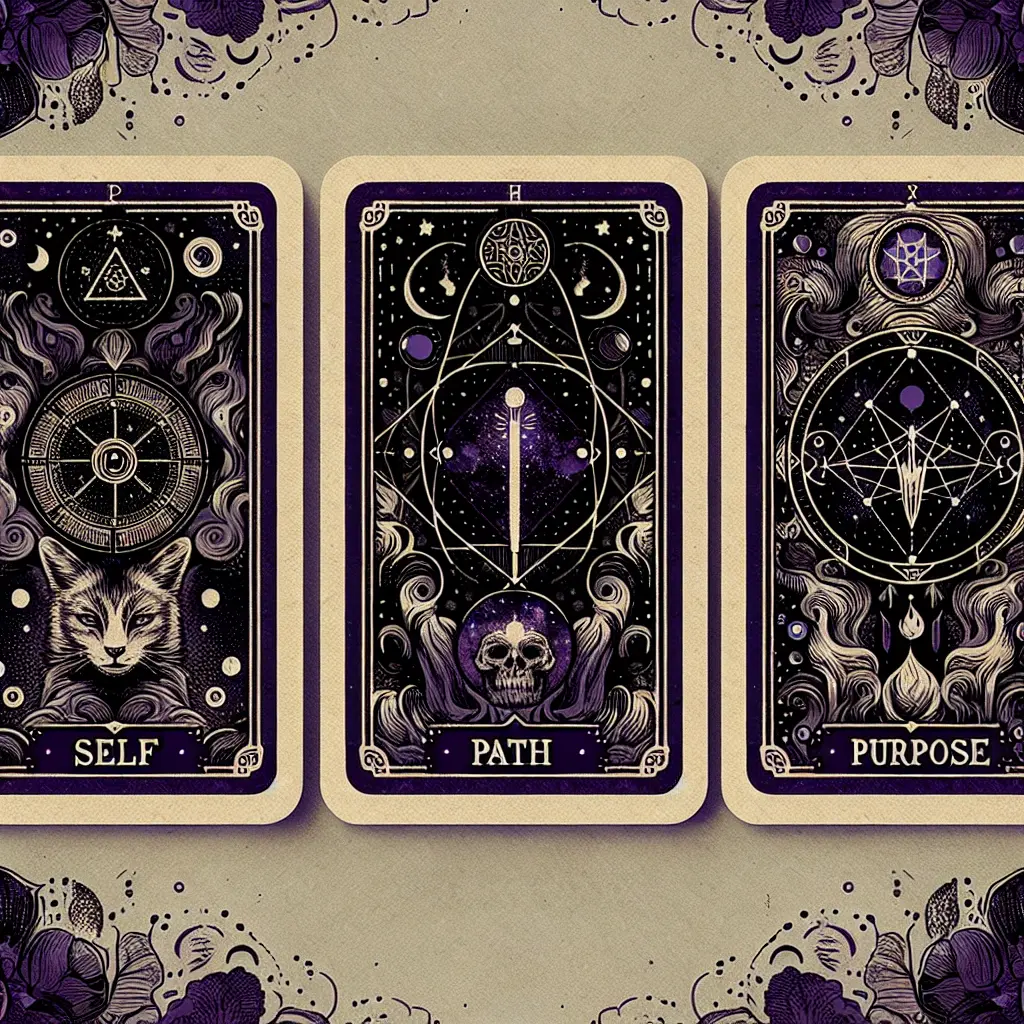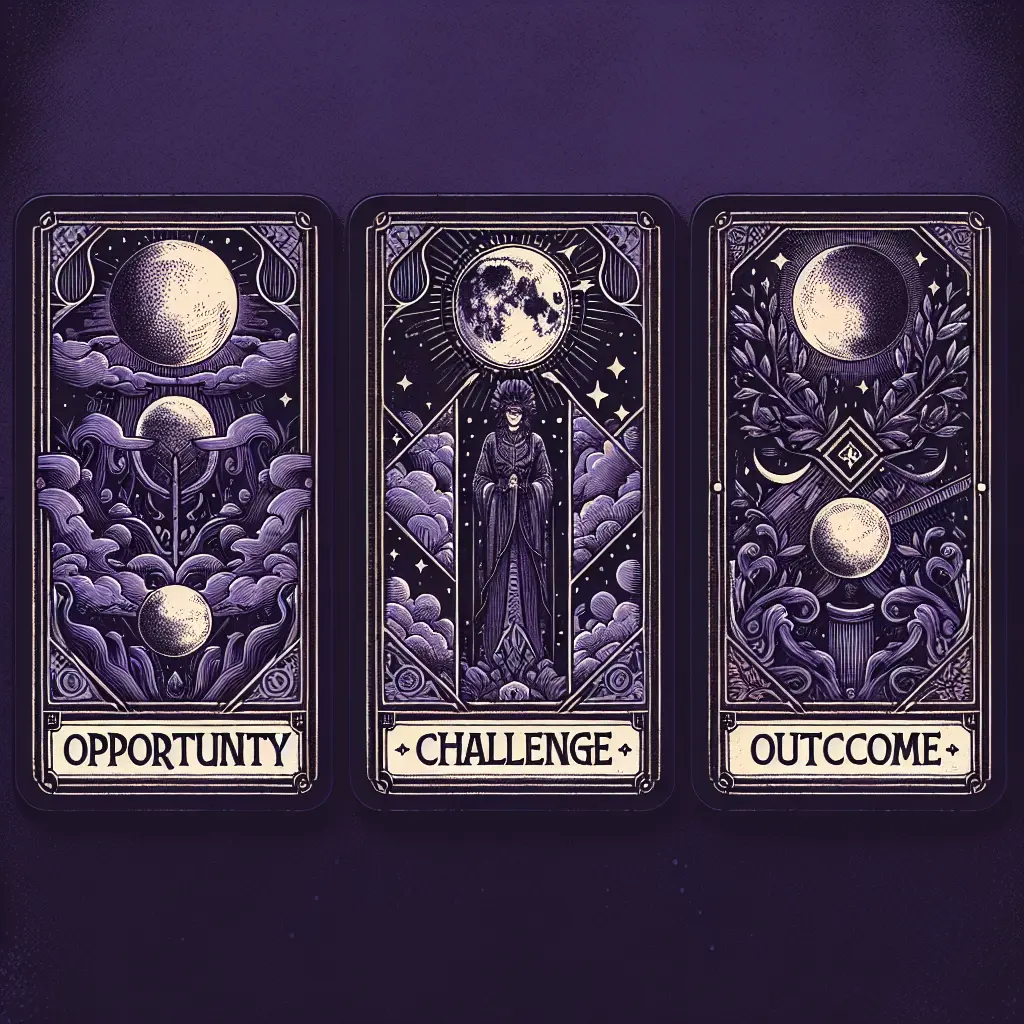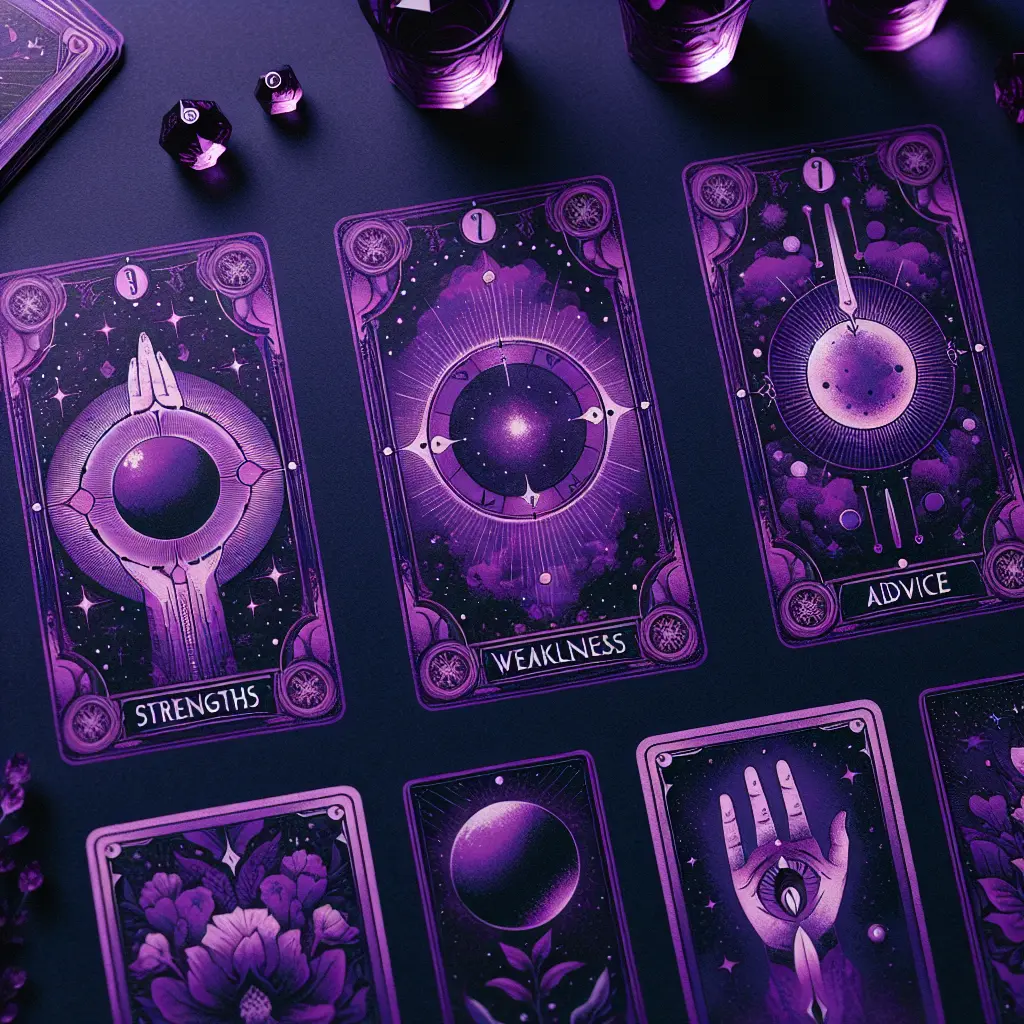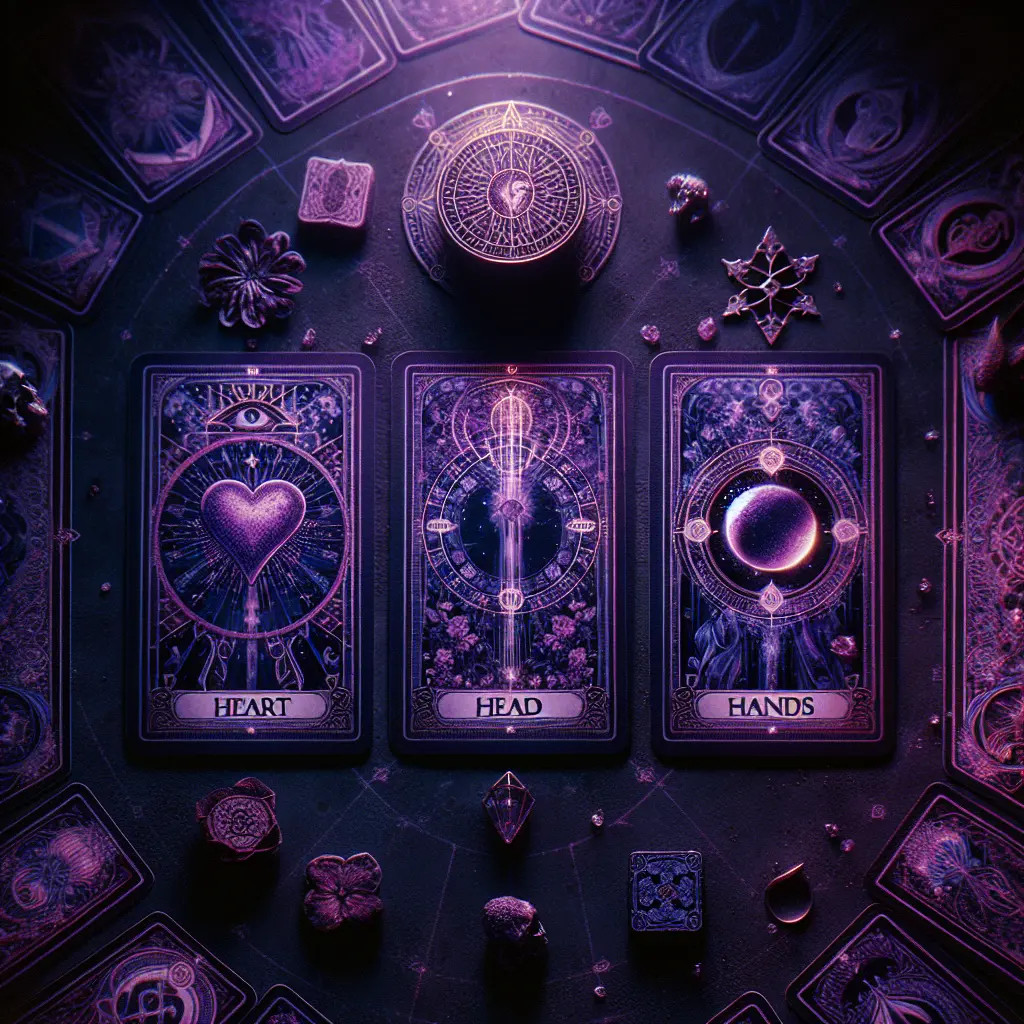Three card "You, Them, Relationship" spread
Spread overview
The 'You, Them, Relationship' spread is a simple yet profound method to gain insight into the dynamics of personal relationships. This spread uniquely examines the energies and perspectives of two parties involved as well as the interplay between them. As a tarot reader with a decade of experience, I have found this spread to be incredibly valuable in understanding various types of relationships, including romantic, platonic, familial, and professional connections.
Using just three cards, this spread allows the querent to reflect upon their position ('You'), gain a perspective on the other person ('Them'), and explore the essence of the relationship itself ('Relationship'). It's a great tool for those seeking clarity on how they are showing up in a relationship, how the other person is contributing, and what the combined energy is creating. Because of its straightforward structure, it's perfect both for those new to tarot and for seasoned readers looking for a quick, insightful reading.
Throughout years of practice, I have observed that the 'You, Them, Relationship' spread not only provides immediate guidance but also encourages deeper self-awareness and understanding of interpersonal dynamics. It acts as a mirror, reflecting the subtle nuances of interactions, and challenges us to address the harmony or discord in our connections with others. By the end of this article, you'll be equipped to use this spread effectively for personal growth and relational insights.
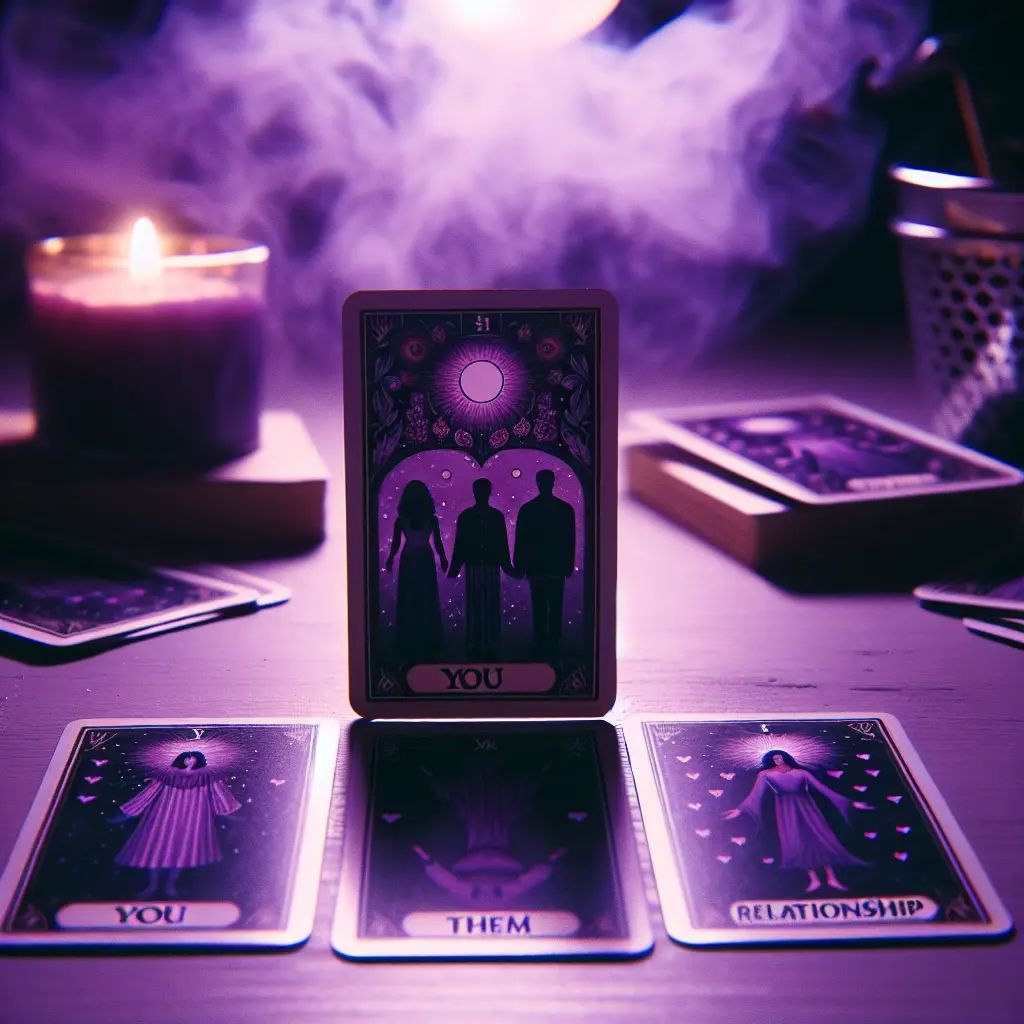
Try tarot spread online
Are you eager to try it right now?
Press the button when you are ready
Clear your mind and focus on the question you want to ask
Feel free to take your time, then click "Next" to proceed
Shuffle the cards for as long as you need
Now draw cards by clicking on them
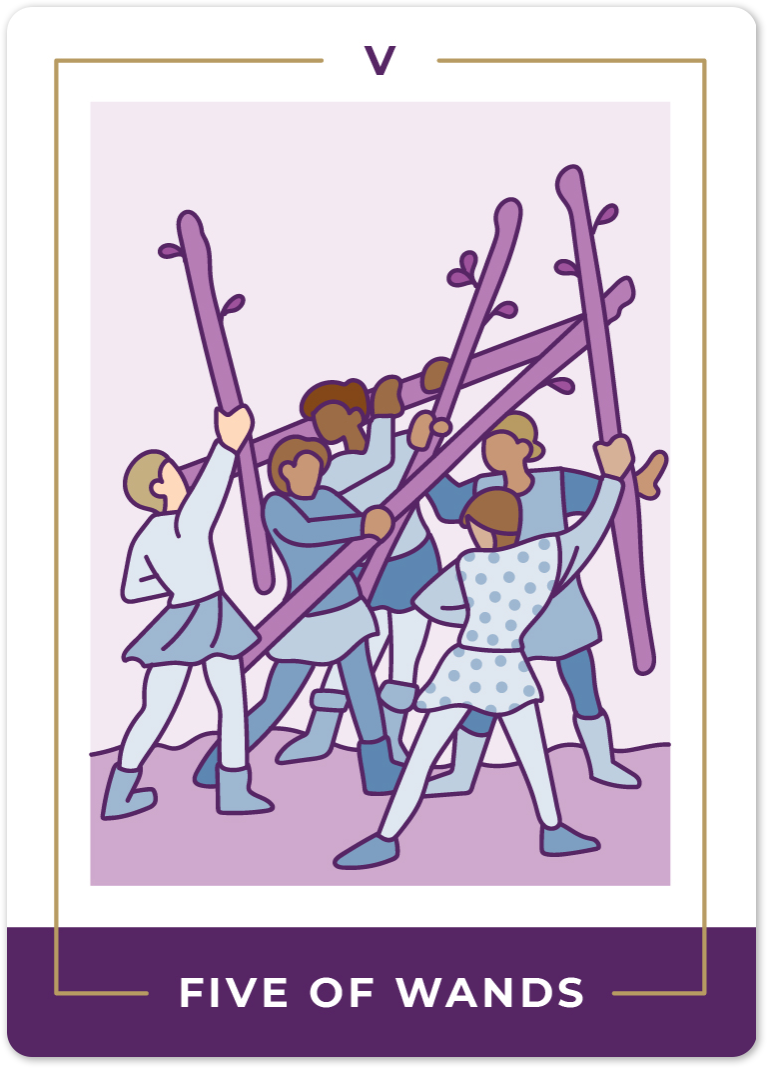
You
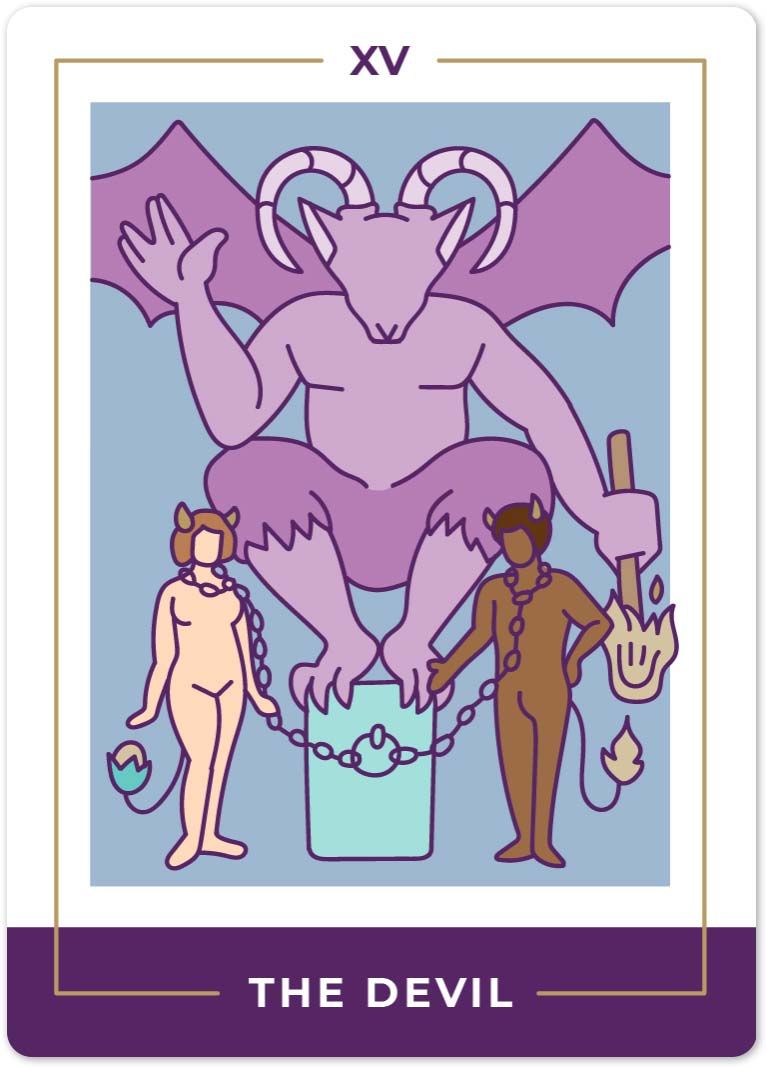
Them
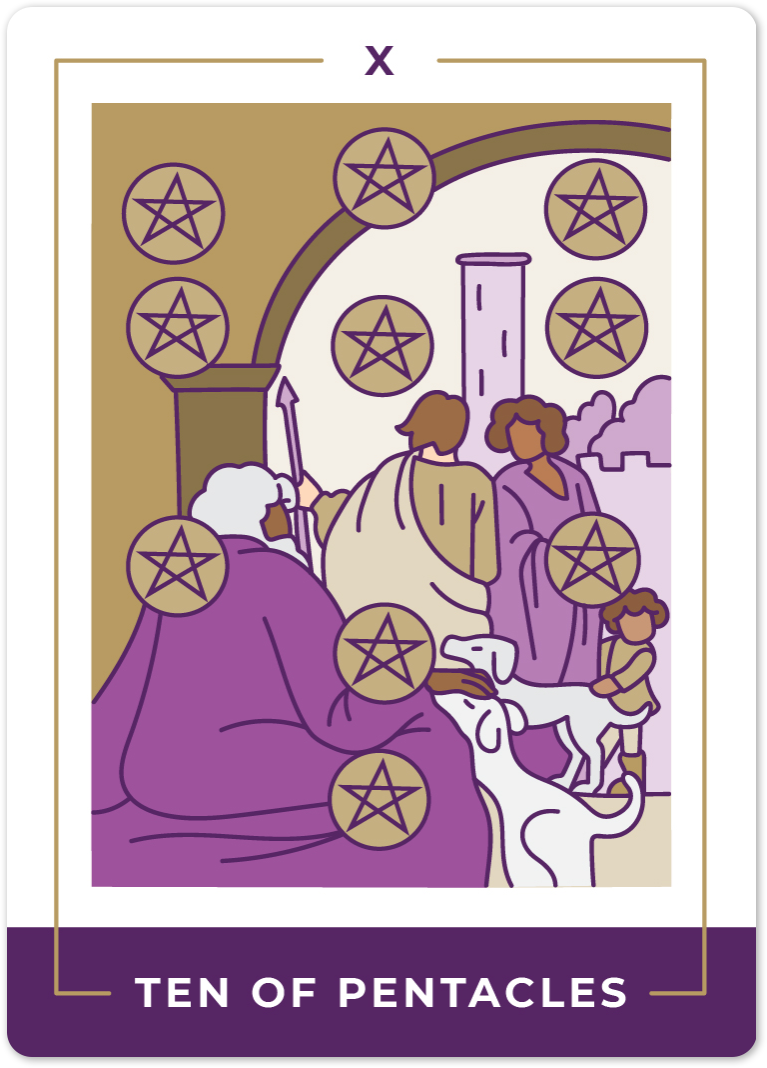
Relationship

The Five of Wands represents conflict, competition, and minor disagreements. It suggests facing challenges and clashes of opinions, but such strife can lead to personal growth, developing new strategies, and innovative outcomes. The card encourages embracing competition and navigating conflicts constructively.
Card details
The upright Devil card symbolizes self-imposed bondage to materialism or negative behaviors. It suggests a need for introspection and overcoming personal limitations to achieve freedom and personal growth.
Card details
The Ten of Pentacles represents financial success, long-term security, and family legacies. It signifies abundance, stability, and the culmination of efforts that enrich not just oneself, but also family and future generations. A card of tradition and enduring wealth, it is a positive sign of prosperity and satisfaction.
Card detailsThe tarot card meanings provided here offer general insights and may not precisely reflect your personal question. Use this tool as a catalyst for self-discovery, understanding that the interpretation is subjective, and the true value lies in your own reflections.
What questions you can ask?
Before performing the 'You, Them, Relationship' spread, it's essential to consider what kind of questions to ask the tarot. The nature of your questions can significantly influence the clarity and usefulness of the reading. Start by focusing on open-ended inquiries that prompt deeper contemplation.
Consider questions like, 'What do I bring to this relationship?', 'How does the other person perceive their role?', or 'What is the fundamental nature of our interaction?'. Other examples include 'How can I foster a better understanding between us?', 'What lessons do I need to learn from this relationship?', or 'What can we do to strengthen our connection?'. Reflective and intention-setting questions like these guide the tarot to offer meaningful and action-oriented insights.
What questions better to avoid?
While tarot can offer significant insight into relationships, certain questions are not suitable for the 'You, Them, Relationship' spread. Avoid overly specific 'yes or no' questions, as they can restrict the depth of the reading. Also, refrain from asking questions that invade the other person's privacy or autonomy.
Questions to avoid include 'Will they leave their partner for me?', 'Are they being unfaithful?', or 'What are their deepest secrets?'. Instead, focus on queries that relate to your own experience and the mutual dynamic. Remember, this spread is designed as a tool for personal growth and clarity—not for prying into someone else's private matters or attempting to predict behavior with certainty.
Spread step by step guide
Set your intention and quiet your mind. Before shuffling the cards, take a moment to clarify your questions and focus on the relationship you wish to explore.
Shuffle the cards. As you mix the deck, maintain your focus on the relationship and the questions you wish to ask.
Cut the deck. This can be done in any manner you feel inclined to, whether that's splitting the deck into two and restacking or using a more intuitive method.
Draw three cards. Lay the first card on the left, representing 'You', the second card in the middle for 'Them', and the third card on the right for 'Relationship'.
Interpret the 'You' card. Reflect on what the card says about you, your traits, emotions, and behaviors in the context of the relationship.
Interpret the 'Them' card. Consider the qualities, emotions, and behaviors of the other person, keeping in mind that this card reflects your perception of them.
Interpret the 'Relationship' card. Contemplate what the card represents about the present state, challenges, and the potential future of the relationship.
Synthesize the readings. Look for themes or messages that are consistent across the cards to gain a cohesive understanding of the relationship dynamics.
Card positions in details
In the 'You, Them, Relationship' spread, each card occupies a position that brings its unique perspective to the reading.
The first card, 'You', is a mirror reflecting your role and energy within the relationship. This card can reveal your thoughts, feelings, and subconscious influences that you bring to the interaction. It asks you to be introspective and honest with yourself about your contributions—both positive and challenging—to the relationship.
'Them', the second card, represents the other person involved. It portrays your perception of their influence and presence within the relationship. This card can highlight the qualities you associate with them and your understanding (or misunderstandings) of their perspective.
The third card, 'Relationship', synthesizes the energies of the 'You' and 'Them' cards. It provides insight into the dynamic interplay, the shared trajectory, and the potential of the relationship. This card encompasses the essence of your connection, the lessons you both need to learn, and can guide you toward a healthier, more harmonious interaction.
Sample of reading
A client recently came to me with the question, 'Why do I feel unfulfilled in my partnership, and how can we improve our connection?'. We decided to use the 'You, Them, Relationship' spread to gain insight. The cards drawn were the Four of Cups for 'You', the King of Swords for 'Them', and The Lovers for 'Relationship'.
The Four of Cups indicated feelings of dissatisfaction and the tendency to focus on what's missing, suggesting a need for gratitude and acknowledging the positive aspects of the relationship. The King of Swords for 'Them' suggested a partner who communicates well and values intellectual connection but may come off as emotionally detached.
The Lovers card for the 'Relationship' suggested that, at its core, the relationship possesses a deep connection and potential for harmonious union, but there's a need for choices to be made to realize this potential.
In this scenario, the cards pointed out the client's discontent and the partner's rational nature. Acknowledging the emotional needs and improving communication could balance the grounding logic provided by the King and the unity offered by The Lovers. The reading was a call to action for both parties to actively contribute to a fulfilling relationship.
Spread tips
Approach the reading with an open heart and mind. Be prepared to receive the messages that the cards offer, even if they challenge your expectations.
Concentrate on the overall dynamic rather than fixating on the individual cards—relationship readings are about the interplay of energies.
Use the spread as a starting point for dialogue. If appropriate, share the reading with the other person involved to foster open communication.
Practice ethical reading by focusing on your participation in the relationship and not attempting to delve into the other person's psyche without their presence or consent.
Remember to consider the cards as advice, not absolutes. Tarot readings offer guidance, but they do not dictate the definitive future of any relationship.
Common mistakes
Misusing the 'Them' card to make assumptions about the other person's thoughts or feelings, instead of considering it a reflection of your perception.
Asking overly specific or leading questions that don't allow the rich symbolism of the tarot to guide the reading.
Ignoring the context in which the reading takes place, whether it be the current astrological influences, your own bias, or the querent's emotional state.
Overlooking the interconnectedness of the cards and interpreting each position in isolation without considering how they influence each other.
Becoming overly fatalistic about the 'Relationship' card. It is important to remember that every relationship entails work and the potential for change.
Frequently asked questions (FAQ)
Q: Do all three cards carry equal weight in the reading?
A: While all cards are important, the weight of each card may differ depending on the specific question and context. The 'Relationship' card, however, often offers a more holistic view of the situation at hand.
Q: Can this spread be used for relationships other than romantic ones?
A: Absolutely. This spread can be applied to any type of relationship, from friend to family member to colleague.
Q: What if the cards drawn seem to contradict each other?
A: Contradictions may signify underlying complexities within the relationship. Explore the nuances and seek a deeper understanding of the energies at play.
Q: How should the cards be interpreted when they come up reversed?
A: Reversed cards could highlight blockages, internal challenges, or aspects that are not being fully expressed within the relationship.
Q: If the 'Them' card seems negative, does that mean the partner is at fault?
A: Not necessarily. Remember that the 'Them' card reflects your perceptions, which may be influenced by your own experiences and biases.
Q: Can the spread be affected by how the querent frames their question?
A: Yes, the way a question is asked can deeply influence the reading. It's important to ask questions that are open and reflective to receive the most meaningful guidance.

